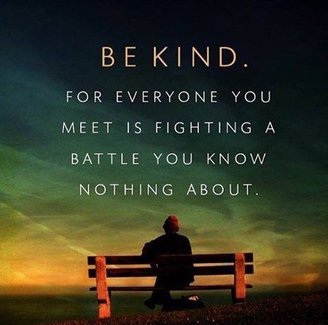So, at short notice, I find myself in Rwanda, East Africa, on a volunteer project, training the staff of the country’s umbrella microfunding agency — meaning I’m either flat-out busy…or sleeping. But have no fear! My wife, Louisa Rogers, has come to the rescue with a moving column about mental health issues.
###
A few years ago, I visited B, an old friend, in Seattle. I always knew she was disorganized, but I was not prepared for the state of her home: I could barely see an inch of floor for all the papers, newspapers, books, clothes and other clutter strewn everywhere. Dirty plastic bags filled the kitchen sink, waiting to be rinsed before she took them to the recycling center. They had been there for months. The one puddle of emptiness and order was her bed, an island and a refuge. To be fair, B had warned me before my visit. In fact, it was a privilege that I was there at all — I was the only person allowed into her home.
What was so strange about this for me was that B was a successful case manager at a nonprofit organization, with one failing: she became over-involved in certain cases, especially with a particular elderly woman with no family. B would visit her after work and spend hours on her case, to the exclusion of other clients.
Gradually B’s “inappropriate boundaries” and her inability to manage her workload became obvious; she lost her job. Soon after, she was diagnosed with OCD (obsessive compulsive disorder), a syndrome that often manifests itself in hoarding and difficulty in letting go.

Her diagnosis was the first of a series of wake-up calls for me. Another friend, also diagnosed with OCD, couldn’t handle the stress and responsibility of managing a health care agency. He quit and found a job as a low-level clerk in a hardware store. But even in this job, he’d see an area that could be better organized, and he’d start to arrange and rearrange items on a shelf, neglecting his other tasks. Repetitive ordering and arranging are also hallmark characteristics of OCD.
Nowadays, when I meet people on federal disability, I rarely think they’re abusing the system. I don’t believe my friend who works in the hardware store would — in the best of all worlds — choose to work at a minimum-wage job, or that my bipolar friend was happy to give up practicing law, or that my relative with chronic fatigue syndrome wanted to lose her 25-year position as a social worker.
U.S. business culture tends to reward a certain kind of worker: one who is organized, on time, extroverted, a morning person, and more “left-brain” than “right-brain.” It’s easy for people like me, who happen to be equipped with traits lying within this cultural norm, to see those lacking such traits as flighty, lazy and unreliable.
Don’t get me wrong — people’s quirks can still drive me nuts! But a little earlier than I used to, now I say to myself, “Maybe there’s more going on than I see.” And give them a bit of slack.
CLICK TO MANAGE